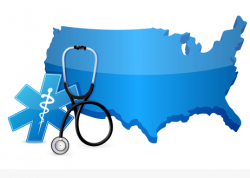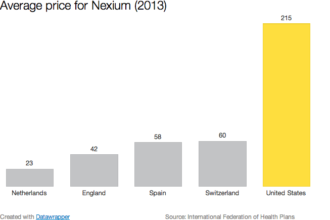Public health isn’t just providing health care for low-income families and individuals. It’s largely responsible for lengthening life spans and improving health for all individuals throughout the Western world. Public health advances, including water fluoridation, food fortification, immunizations, increased access to family planning, reductions in heart disease, expanded access to safe and healthy foods, and increased vehicle and workplace safety have been credited with helping the average person live 25 years longer than the average person in 1900, and enjoy greater quality of life along the way. Just because health officials and policy makers have won many important public health battles in the U.S. and other Western countries, doesn’t mean that they have won the war. The United States lags behind most other developed countries when it comes to patient outcomes, especially considering that our healthcare system is the world’s most expensive. An increased emphasis on the importance of primary care could slash health care costs, lengthen American lives, and vastly increase American quality of life; that’s why some consider increased access to primary care the public health mission of the 21st century.
The Problems with Primary Care
One of the many problems with the American health care system is its focus on treating, rather than preventing, disease. Primary care physicians in the United States are often stretched too thin; they lack the time to adequately counsel patients, and they’re relatively poorly paid compared to most medical specialists. As a result, most patients in the U.S. aren’t getting the primary care they need to stay healthy longer; instead, they’re developing preventable acute and chronic conditions and winding up hospitalized. That causes the health care system as a whole more money, and it’s not the best way to address chronic conditions like Type 2 diabetes. It would be much more cost effective to focus on preventative and primary care, so that healthy patients remain healthy and fewer hospital stays are necessary.
The Potential of Primary Care
Other nations experience lower health care costs because they offer a better quality of primary care that helps patients stay healthy, preventing costly chronic conditions. One way to make this happen in the United States would be to prioritize primary care by offering these providers higher salaries commensurate with their importance to the health of patients. That way, more providers would be motivated to provide primary care. Paying primary care providers more might sound more expensive on the surface. But in fact, it could significantly cut health care costs by greatly reducing the incidence of chronic conditions and the need for more invasive, expensive interventions. A patient who never gets heart disease, diabetes, or cancer is a patient who will cost the system less money overall than one who does develop one of these diseases. And that patient will live a longer, happier life in better health, during which he or she will work longer and contribute more to the economy.
How Is Access to Primary Care Public Health Issue?
When you earn a degree in Master’s of Public Health, you’ll gain a deeper understanding of how factors in a patient’s environment and community can affect both individual and communal health. Primary care is a public health issue because universal access to effective primary care can improve the collective health of the entire population. It can bring down rates of preventable conditions like Type 2 diabetes, high blood pressure, stroke, cancer, and arthritis. This, in turn, can mean most people will live healthier, longer lives, and enjoy better quality of life. Universal access to primary care can also do a lot to bring vaccination rates back up, assess the effectiveness and safety of vaccines, and control disease outbreaks. Primary care physicians can maintain the health of women and children by ensuring proper gynecological care, access to family planning services, prenatal care, and proper care and nutrition for mothers and children. This ensures that more babies will be born healthy, and grow up into healthy adults. Many chronic and infectious diseases and conditions can be prevented with access to primary care, and that’s why expanding access to primary and preventative care will be one of the greatest public health achievements of the modern era. Not only will this reduce strain on the health care system, it will also cut costs, and improve quality of life for Americans everywhere. The nature of primary care will evolve in the future. Doctors will extend their services beyond writing prescriptions and begin offering more exercise tips and dietary advice. This will reduce the prevalence of chronic illnesses and cut healthcare costs on a global scale.







